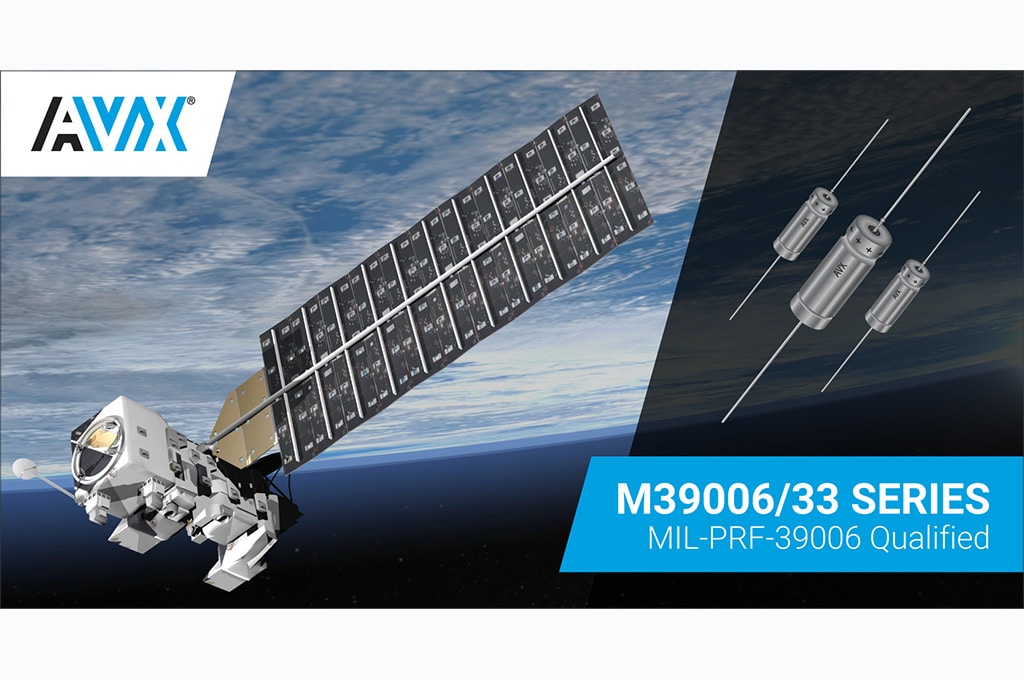Source: AVX news
TWA M39006 Series axial-leaded, hermetically sealed wet tantalum capacitors deliver high-reliability, high-CV performance in harsh-environment military, defense, avionics, & industrial applications.
FOUNTAIN INN, S.C. (February 26, 2019) – AVX Corporation, a leading manufacturer and supplier of advanced electronic components and interconnect, sensor, control, and antenna solutions, announced that several of its TWA Series axial-leaded, hermetically sealed wet electrolytic tantalum capacitors are now qualified to MIL-PRF-39006/33A.
Designed to deliver high-reliability, high-CV performance in harsh-environment military, defense, avionics, and industrial applications, including satellites, DC/DC power supplies, power converters, bulk energy storage, and pule power circuits, the new TWA M39006 Series capacitors have a cylindrical, axial-leaded case with a hermetically sealed welded tantalum can and header assembly that ruggedly withstands environmental hazards including shock, vibration, and temperatures extending from -55°C to +125°C, and a unique cathode system that provides impressively high CV/cc and stable electrical parameters.
TWA Series capacitors currently on the MIL-PRF-39006 qualified parts list (QPL) are manufactured at the AVX facility in Lanškroun, Czech Republic, and include T3 and T4 case sizes with M-level reliability (i.e., failure rates of 1% per 1,000 hours), capacitance values spanning 470–1800µF, and voltage ratings ranging from 25–75V. The TWA M39006 Series capacitors also exhibit low DC leakage (5–12µA at +25°C and 20–50µA at +85°C and +125°C) and low ESR (0.5–0.9Ω max. at 120Hz).
“In addition to delivering stable, high-reliability, high-CV performance, TWA M39006 Series wet tantalum capacitors also have long lifetimes, which contribute to reduced maintenance requirements and lower total systems costs,” said Mitch Weaver, member of the technical staff, AVX.
Parts with P-level reliability (i.e., failure rates of 0.1% per 1,000 hours) are currently in the midst of the qualification process, and additional capacitance values, voltage ratings, and case sizes will follow. Lead-time for the series is currently 10–14 weeks.
